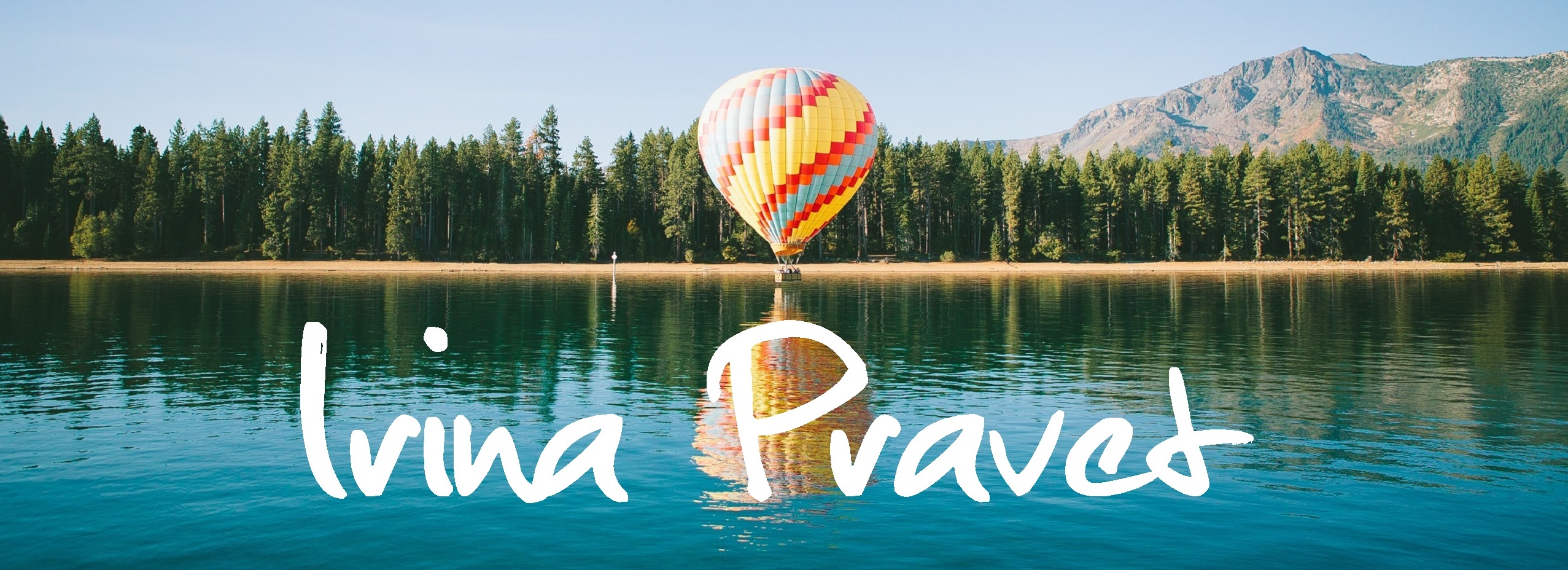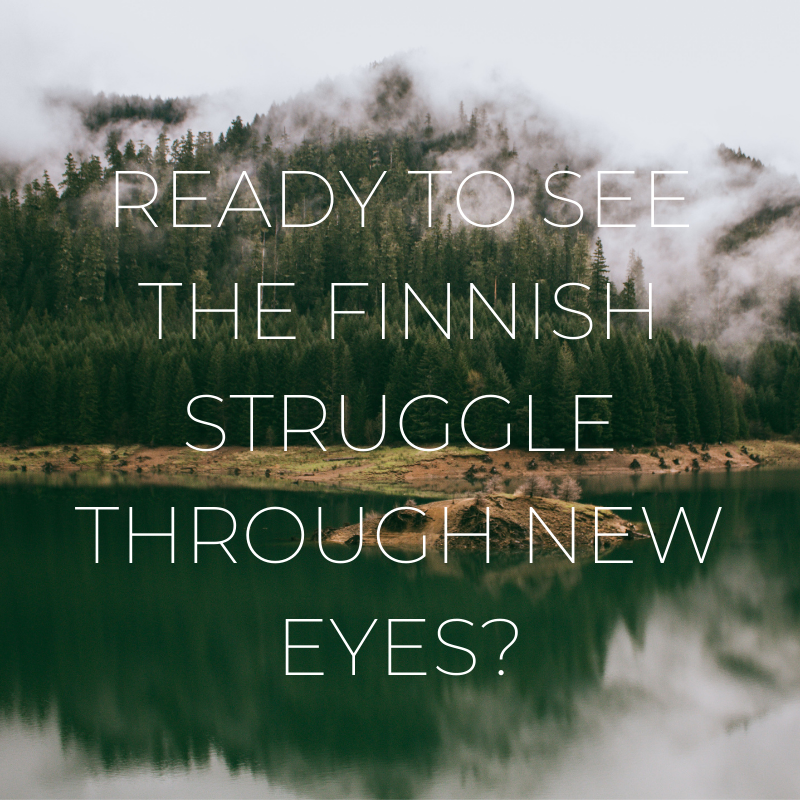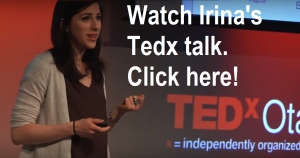
A big part of what I do is challenge people to think differently about language (& language learning). This is mainly because, when I talk about language and how languages are learned, I see a world of possibility, unity and inclusion that seems to go unnoticed by so many. Yet it’s sitting here in plain sight, waiting to be perceived by all who wish to do so. (Yes, even when it comes to the Finnish language.)

In order to see languages as bridges instead of walls, we need to untangle them from distortions of power. Bear with me, as I explain what this means because this untanglement changes everything.
Moving to a new country with a new language (or several) has the potential to disturb our sense of belonging and feeling included. If like me, you grew up feeling like you didn’t really belong, these issues can really rise to the surface during immigration (even in adulthood) and become exacerbated through power dynamics playing out in the culture.
The influence of power in language learning is so strong, it takes curiosity, willingness and a lot of patience to untangle the two. (I’ll admit I didn’t realize the connection until quite late.) With multiple languages often come differences of power, which can show up in different ways. For example…
- In the way language is taught to immigrants, & how these systems are designed (sometimes based on biases/limited perceptions about immigrants’ value to society) – also, the quality of options & who has access to it
- When language skills are used as an excuse to not hire someone, because of underlying biases
- In how some immigrants are expected to learn Finnish, while others are not – or even actively discouraged
- In how some languages are considered more valuable or useful than others, instead of valuing diversity
- And many more…
While it’s possible to sometimes imagine our exclusion, there are also countless situations where we can experience its concrete effects in an adopted country: unemployment (or unemployability), racism, discrimination, prejudice, burnout or social exclusion and isolation. With repeated instances, it can become hard to discern what’s intended, ignorant, projected or a bit of all three amplifying each other.
So I get why it can be difficult to talk about learning Finnish in a way that doesn’t equate these painful experiences and their associated emotions with the language itself.
This is a big knot to untangle and it’s fair to wonder if it’s even possible to see things differently…
What is language anyway?
When my mind is filled with noise and intense emotions, I dig for the simplicity of an underlying truth. If we ask: What is a language anyway? Who does it belong to?
One of my favourite answers comes from indigenous public speaker, artist, scholar, and community organizer Lyla June Johnson*:
“Indiginous language is the land speaking through the people.” – Lyla June Johnson
According to indigenous wisdom, land cannot be owned. Language arises out of the land (not a passport or a nation), and people bring it forth when they inhabit the land.
-Pause for a moment to really take this in.-
I get goosebumps when I read Lyla’s quote because it resonates with a deep truth. Although I know very little about indigenous languages, my humble version of the above goes like this:
“Finnish, like other languages, evolved from human brains for human brains.”
This means that people who have been speaking a language their whole lives cannot own the language.
- Finnish people don’t own Finnish.
- Japanese people don’t own Japanese.
- Nepali people don’t own Nepalese, etc.
Rather, they are guardians of the language. Through them the language survives, is shared, maintained and evolves with the times.
Speakers of the language are keepers of the language for those to come: whether by birth or migration. Language is transmitted through mutual participation.
Language is for us, from us. ‘Them’ is an illusion.
When we divorce power from language, we uncover the truths of human language:
- linguistic adaptation and linguistic integration is your birthright.
- You are wired for language,
- and no one can take this fundamental truth away from you.
Sit with these words. Contemplate the truths that lie at the root of things.
Notice what sensations these words reveal in your body.
Sit (or move around) as you witness them.
Know that you are not alone.
The Truths at the Root of Things
I began to uncover the truths above as I stumbled around the in the dark amidst much anguish, after moving to Finland in my early 20s. What kept me going was the immediate relief I felt, as I sought to embody and live out each of these truths… the uniserval truths empowered me on my Finnish learning journey and I noticed the impact ripple out into the rest of my life.
What does embodying universal language truths look like? I imagine it might be a bit different for each of us.
For me, it meant becoming aware of my belonging, instead of focusing on my ‘otherness’. I began to practice patience and compassion, especially in situations that were entirely new for me. I re-inforced the idea that I was claiming my birthright to adapt and that I was doing my best, every step of the way. I told myself that I belong and that I am Finnish (among my other identities) because I am here in Finland, no longer looking to others for validation of my belonging.
As a result, I also started to show up more often as an equal, instead of taking on implicit assumptions about being ‘less than’ for having an accent, making mistakes/not understanding everything, or not being a ‘native’ speaker. I started to become aware of how I’d perpetuated exclusion by ‘othering’ people out of fear of my own belonging – how I may still occasionally do this and slowly but surely, developping compassion for people who do it to me, too. All of this is an ongoing practice.

Surely, all sorts of magic started to happen. Although this may seem unrrelated to the actions I was taking to learn Finnish, I believe this is because as we embody language truths, we tinker with what’s at the foundation of all that we do. And so, things start to shift – to transmute. Opportunities and insights that were previously impossible start to show themselves…
My invitation to you, when and if you’re ready, is to allow this message of unity to untangle any knots…
How would you show up,
if you embodied these universal language truths?
Here they are again:
- linguistic adaptation and linguistic integration is your birthright.
- You are wired for language,
- and no one can take this fundamental truth away from you.
What might change in how you show up, talk to yourself and others, and the things you believe about yourself and your abilities? Yes, we’re still talking about language learning, but also touching on so much more because language is a form of self-expression connected to it all.
My deepest wish for us
May we all acknowledge our deepest belonging: to this planet, the land we inhabit and the bodies in which we dwell. May this realization contribute to healing any experiences that have made us feel unwelcome here, so we can stop perpetuating exclusion and instead, make inclusion – linguistic & of all sorts – the reality.
There is a lot of hope in newfound awareness!
We don’t need to wait for all the systems to change, but we do need to make a personal choice to stop agreeing with and perpetuating power differences to the best of our awareness. And when we fail to do so, to learn from each experience and show up to try again.
Perhaps the best news of all, is that the decision to live out the power within you is and always will be in your hands.
*I believe Lyla June’s quote is from this podcast interview.



